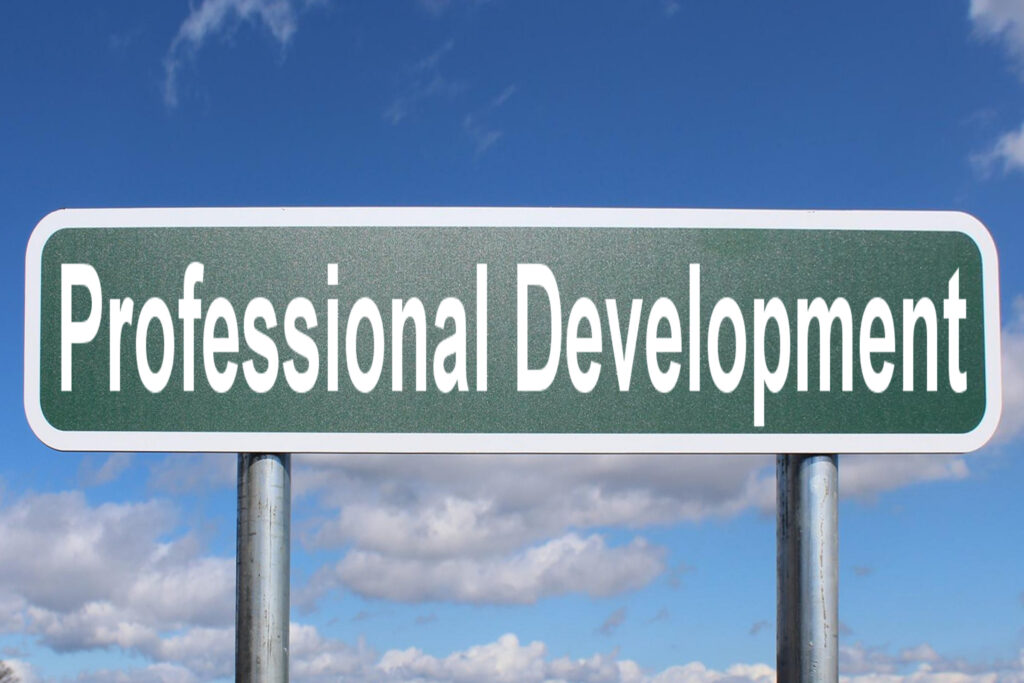It is January and that time of year when we consider new habits, routines and development. As new resolutions begin, we may consider it a good bet to focus some effort on how best to support professional development.
Here is a short selection of freely available reading on effective teacher professional development:
This guidance report does a really helpful job of defining what are the key ‘mechanisms’ that can help drive effective professional development. By identifying these supporting mechanisms, paying close attention to developing some of them (such as ‘social support’ or ‘prompting action planning’), you can help support and sustain professional development… SEE HERE.
[Additionally, Professor Rob Coe has written a helpful blog about the guidance entitled ‘Maximising Professional Development’ HERE]

2. ‘Against Boldness’, by Mary Kennedy
It is paradoxical perhaps to suggest that we should not be bold with teachers’ professional development. But, given the sheer complexity of the job, and the difficulties in changing our habits and practices, I think we should be greatly cautious about our ambitions for teacher professional development. Put bluntly, most attempts at PD fail. I think if every school leader read this challenging paper and reflected upon its call for more pragmatic, incremental change, then it would be a better bet that more teachers improve… SEE HERE. [If you’re intrigued about Mary Kennedy – you should be – read a great Harry Fletcher-Wood quick summary of her key work HERE.]

Teacher development needs to be practical and address real issues in the classroom, but it also needs to be supported by some simplified theory in how children learn. Willingham offers a clear argument and practical approaches. Though it is not the business end of professional development, for new and experienced teachers, mental models of the learner, memory, and more can prove helpful… SEE HERE. [Tom Sherrington has offered a compelling argument why a mental model of learning is needed – ‘A Model for the Learning Process: And Why it Helps to Have One‘ – HERE.]

4. ‘Teaching Practice: A Cross-Professional Perspective’ by Dr Pam Grossman et al.
What does the professional development of clinical psychologists, the clergy, and teachers have in common? It turns out, quite a lot. The development from novice to expertise shares lots of common steps and traits. Here, researchers draw upon the professions to argue that we need offer developing teachers ‘representations’ (videos of teaching, lesson plans, curriculum sequences etc), ‘decomposition‘ (we need to break down the complexity into more isolated moves that can be named and framed to aid development e.g. focusing on teacher questioning sequences), and ‘approximations’ of teaching (simulations of teaching, rehearsing with colleagues etc). It is a piece of research that really gets you thinking about precise elements of professional development…SEE HERE. [Expert teachers, like Adam Boxer, relentlessly focus on ‘decomposition’ – breaking down the nuts and bolts of teaching. See Adam’s blog on ‘Ratio lens’ for a great example – HERE.]

Teachers getting better is very specific to the context of the classroom, but we can learn a lot from the rich years of research evidence that characterises ‘behaviour change‘. The specificity about these techniques can prove helpful to steer professional change….SEE HERE. If you want to dig into a whopping 93 techniques, look HERE, but the EEF guidance above does a helpful job of distilling some of the approaches as ‘mechanisms’. [For a shorter overview, Harry Fletcher-Wood writes a great blog on ‘What Influences People? Specifying Behaviour Change Techniques’ HERE.].

If you do find them time to read even some of these documents, it is worth considering most teachers don’t and won’t find the time. Time, tools, support and collaboration, will be necessary.
